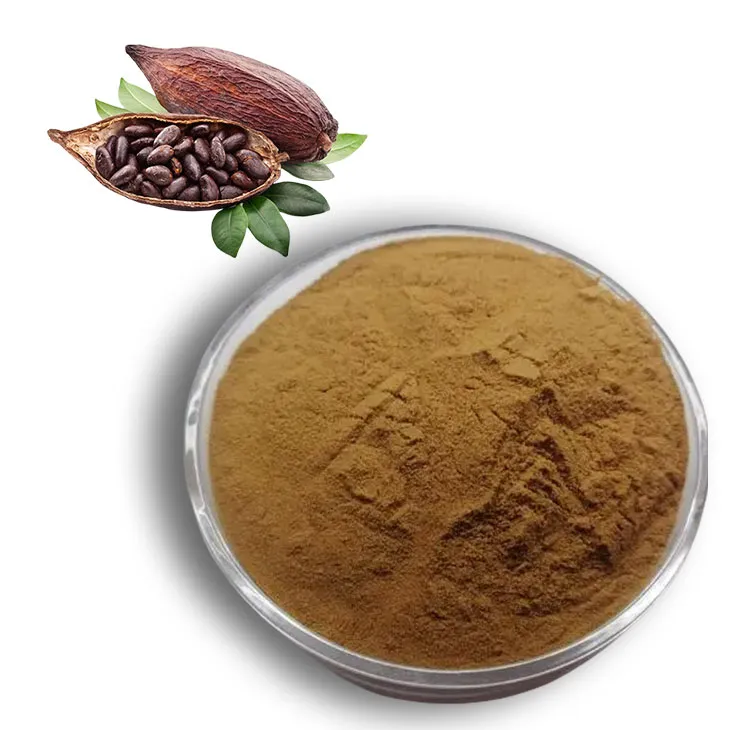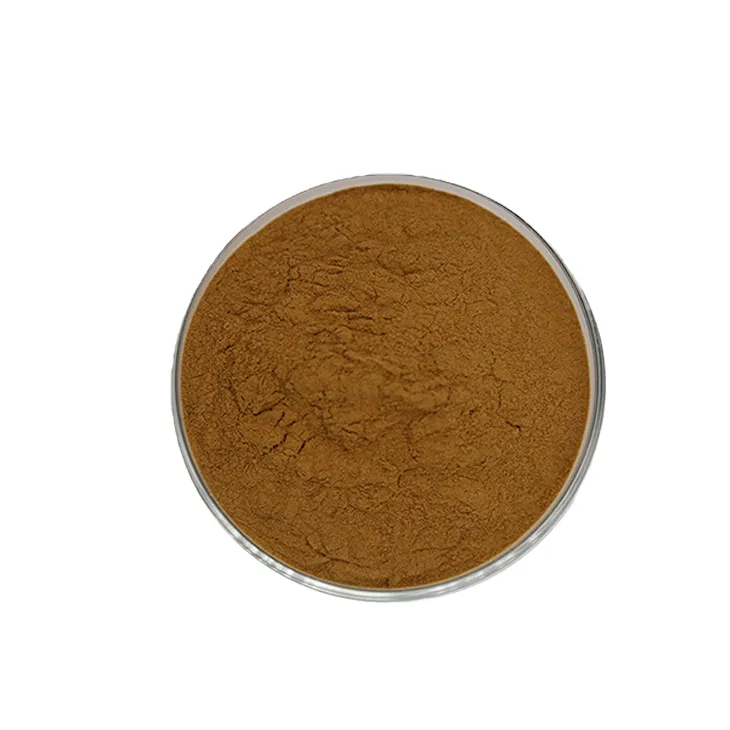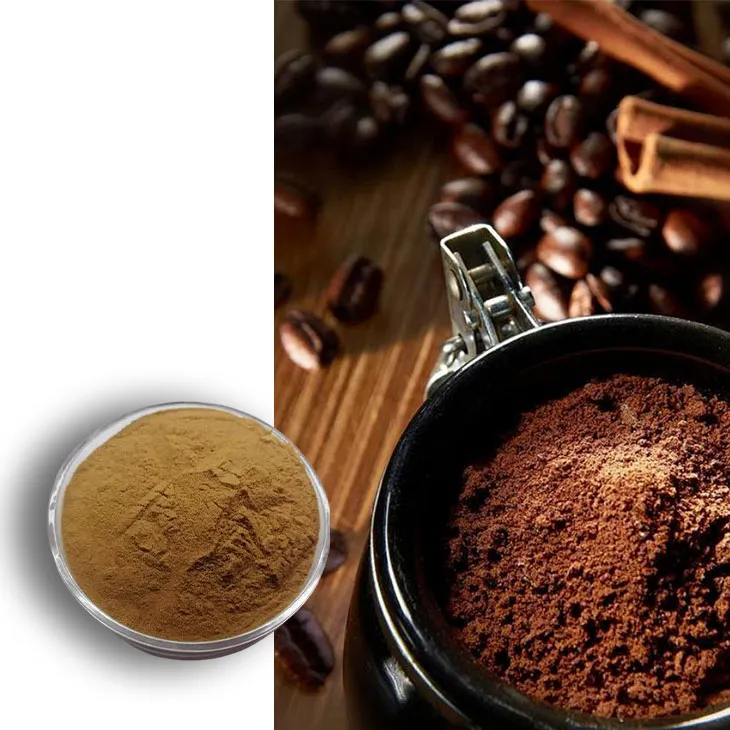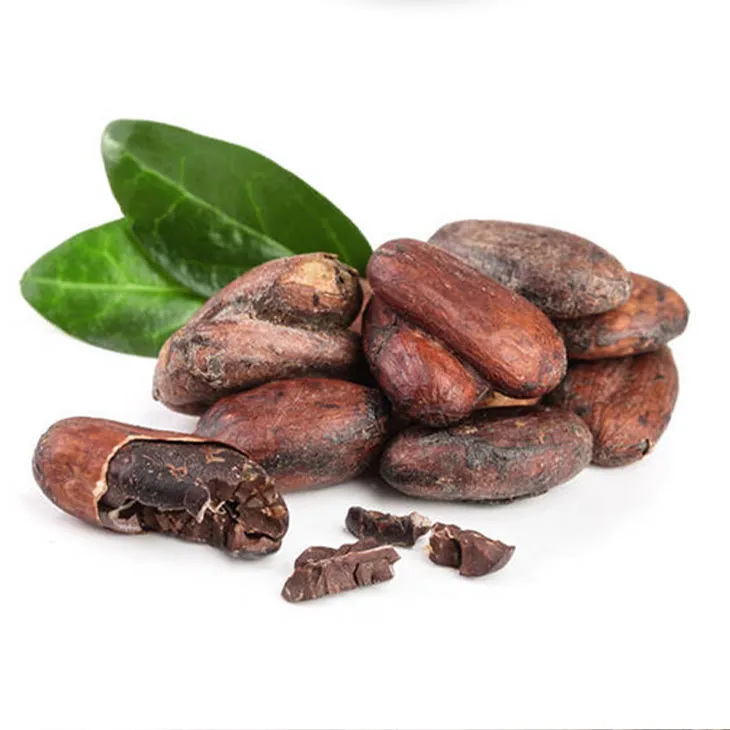- 0086-571-85302990
- sales@greenskybio.com
Cocoa extract can reduce high blood pressure.
2024-11-14

1. Introduction
High blood pressure, or hypertension, is a prevalent health condition that poses significant risks to cardiovascular health. In recent years, there has been growing interest in natural substances that may help in managing blood pressure. Cocoa Extract has emerged as a potential candidate in this regard. Cocoa is a rich source of various bioactive compounds, and understanding its role in reducing high blood pressure is of great importance.

2. Clinical Evidence of Cocoa Extract on Blood Pressure
2.1 Short - term Clinical Trials
Several short - term clinical trials have been conducted to investigate the effect of Cocoa Extract on blood pressure. In these studies, participants were given cocoa - rich products or cocoa extract supplements for a relatively short period, usually ranging from a few days to a few weeks.- One study found that after consuming a specific dose of cocoa extract daily for two weeks, there was a significant reduction in both systolic and diastolic blood pressure in individuals with pre - hypertension. The decrease in blood pressure was comparable to that achieved by some mild antihypertensive medications.
- Another trial focused on hypertensive patients. After a week of consuming a high - flavonoid cocoa extract, a small but noticeable decrease in blood pressure was observed. This suggests that even in patients with established hypertension, cocoa extract may have some beneficial effects.
2.2 Long - term Clinical Trials
Long - term studies are crucial for determining the sustainable effects of cocoa extract on blood pressure.- A multi - year study followed a group of individuals at risk of developing hypertension. Those who consumed a moderate amount of cocoa - based products regularly over the course of the study showed a slower progression to hypertension compared to those who did not. This indicates that long - term consumption of cocoa extract may have a preventive effect on the development of high blood pressure.
- However, some long - term trials also raised questions. For example, in a study where participants consumed cocoa extract for an extended period, the blood pressure - lowering effect seemed to plateau after a certain time. This could be due to various factors such as the body adapting to the cocoa extract or other lifestyle changes during the study.

3. Cocoa Flavonoids and Blood Vessels
3.1 Types of Cocoa Flavonoids
Cocoa contains several types of flavonoids, which are the key bioactive components responsible for its potential blood - pressure - reducing effects.- Epicatechin is one of the major flavonoids in cocoa. It has been shown to have antioxidant and anti - inflammatory properties. These properties are important as they can help protect the blood vessels from damage caused by oxidative stress and inflammation, which are often associated with hypertension.
- Procyanidins are another group of flavonoids in cocoa. They play a role in improving endothelial function. The endothelium is the inner lining of blood vessels, and its proper function is crucial for maintaining normal blood pressure. Procyanidins can enhance the production of nitric oxide in the endothelium, which causes blood vessels to relax and dilate, thereby reducing blood pressure.
3.2 Mechanisms of Action on Blood Vessels
The flavonoids in cocoa extract interact with blood vessels in multiple ways to influence blood pressure.- By enhancing endothelial function, as mentioned above, they promote the release of nitric oxide. Nitric oxide is a vasodilator, meaning it widens the blood vessels. When blood vessels dilate, the resistance to blood flow decreases, which in turn leads to a reduction in blood pressure.
- Cocoa flavonoids also have an impact on the smooth muscle cells in the blood vessel walls. They can modulate the activity of these cells, preventing excessive constriction. This helps in maintaining the normal diameter of blood vessels and contributes to stable blood pressure.

4. Interaction between Lifestyle Factors and Cocoa Extract Consumption
4.1 Diet
The effectiveness of cocoa extract in reducing blood pressure may be influenced by an individual's overall diet.- A diet rich in fruits, vegetables, and whole grains, along with cocoa extract consumption, may have a synergistic effect on blood pressure control. Fruits and vegetables provide additional antioxidants and nutrients that can complement the actions of cocoa flavonoids. For example, potassium - rich foods can help counteract the effects of sodium and further promote healthy blood pressure levels.
- On the other hand, a diet high in saturated fats and sodium may attenuate the blood - pressure - reducing effects of cocoa extract. High sodium intake can lead to increased blood volume and higher blood pressure, while saturated fats can contribute to endothelial dysfunction.
4.2 Physical Activity
Physical activity also plays an important role in combination with cocoa extract consumption for blood pressure management.- Regular exercise, such as aerobic exercise or strength training, can enhance the effects of cocoa extract on blood pressure. Exercise helps improve cardiovascular function, increase blood vessel elasticity, and reduce body weight, all of which are beneficial for blood pressure control. When combined with cocoa extract, which has its own effects on blood vessels, the overall impact on blood pressure can be more significant.
- However, a sedentary lifestyle may limit the effectiveness of cocoa extract. Lack of physical activity is associated with decreased endothelial function and increased risk of hypertension. Even with cocoa extract consumption, if physical activity levels are low, the full potential of blood pressure reduction may not be achieved.
4.3 Stress
Stress is a factor that can significantly affect blood pressure, and it also interacts with cocoa extract consumption.- Chronic stress can lead to increased production of stress hormones, which can cause blood vessels to constrict and blood pressure to rise. Cocoa flavonoids, with their antioxidant and anti - inflammatory properties, may help counteract some of the negative effects of stress on blood pressure. However, if stress levels remain extremely high, the beneficial effects of cocoa extract may be overshadowed.
- Stress - management techniques, such as meditation or yoga, in combination with cocoa extract consumption, may offer better blood pressure control. These techniques can help reduce stress levels, and when combined with the blood - pressure - reducing properties of cocoa extract, can have a more profound impact on overall cardiovascular health.

5. Conclusion
In conclusion, cocoa extract shows promise in reducing high blood pressure. Clinical evidence, both short - term and long - term, suggests that it can have a beneficial impact on blood pressure levels. The flavonoids in cocoa, particularly epicatechin and procyanidins, play important roles in interacting with blood vessels to promote vasodilation and improve endothelial function. However, lifestyle factors such as diet, physical activity, and stress also interact with cocoa extract consumption and can either enhance or limit its effectiveness in blood pressure control. Future research should focus on further elucidating these interactions and exploring ways to optimize the use of cocoa extract as a complementary approach in the management of hypertension.
FAQ:
Q1: What are the main components in cocoa extract that may help reduce high blood pressure?
Cocoa extract contains flavonoids, such as flavan - 3 - ols (including epicatechin), which are thought to play a significant role in reducing blood pressure. These flavonoids have antioxidant, anti - inflammatory, and vasodilatory properties. Vasodilation helps to widen the blood vessels, reducing the resistance in the circulatory system and thus contributing to a decrease in blood pressure.
Q2: How much cocoa extract should one consume to potentially see a reduction in blood pressure?
The optimal amount of cocoa extract for blood pressure reduction is not yet clearly defined. However, some studies suggest that consuming around 20 - 50 grams of high - flavanol cocoa products (which contain cocoa extract) per day may have beneficial effects on blood pressure. But individual responses can vary based on factors such as overall health, diet, and existing blood pressure levels.
Q3: Are there any side effects associated with consuming cocoa extract for blood pressure control?
In general, when consumed in moderation as part of a normal diet, cocoa extract is considered safe. However, some people may experience minor side effects such as digestive issues (like nausea or stomach upset) if they consume large amounts. Also, cocoa products often contain caffeine, which can cause side effects such as increased heart rate, jitteriness, or sleep disturbances in some individuals, especially those sensitive to caffeine.
Q4: How do lifestyle factors influence the effectiveness of cocoa extract in reducing high blood pressure?
Lifestyle factors play a crucial role. For example, a diet rich in fruits, vegetables, and whole grains along with regular exercise can enhance the blood - pressure - lowering effects of cocoa extract. Physical activity improves cardiovascular function and helps the body better utilize the beneficial components of cocoa extract. On the other hand, factors like smoking and excessive alcohol consumption can counteract the positive effects of cocoa extract on blood pressure.
Q5: Can cocoa extract replace blood pressure medications?
No, cocoa extract cannot replace blood pressure medications at present. While it may have a positive impact on blood pressure, it is not as potent as medications specifically designed to control hypertension. However, it can be used as a complementary approach in addition to following a doctor's advice regarding medications, diet, and lifestyle changes for better blood pressure management.
Related literature
- The Effect of Cocoa Flavanols on Blood Pressure: A Meta - analysis"
- "Cocoa Extract and Vascular Health: Unraveling the Mechanisms"
- "Lifestyle Modifications with Cocoa Extract for Blood Pressure Control: A Review"
- ▶ Hesperidin
- ▶ citrus bioflavonoids
- ▶ plant extract
- ▶ lycopene
- ▶ Diosmin
- ▶ Grape seed extract
- ▶ Sea buckthorn Juice Powder
- ▶ Beetroot powder
- ▶ Hops Extract
- ▶ Artichoke Extract
- ▶ Reishi mushroom extract
- ▶ Astaxanthin
- ▶ Green Tea Extract
- ▶ Curcumin Extract
- ▶ Horse Chestnut Extract
- ▶ Other Problems
- ▶ Boswellia Serrata Extract
- ▶ Resveratrol Extract
- ▶ Marigold Extract
- ▶ Grape Leaf Extract
- ▶ blog3
-
High purity olive leaf extract
2024-11-14
-
Lavender oil extraction method
2024-11-14
-
100% organic virgin sea buckthorn fruit oil
2024-11-14
-
Lotus leaf extract powder factory in China
2024-11-14
-
China aged garlic extract supplier
2024-11-14
-
Deer antler extract powder manufacturer
2024-11-14
-
Saw palmetto extract vs whole herb
2024-11-14
-
Polygonum multiflorum extract
2024-11-14
-
Lycopene
2024-11-14
-
Bitter Melon Extract
2024-11-14
-
Garcinia Cambogia Extract
2024-11-14
-
Red Wine Extract
2024-11-14
-
Medicinal Marshmallow Extract
2024-11-14
-
Hedyotis Diffusa Extract
2024-11-14
-
Fig Extract
2024-11-14
-
Buckthorn bark extract
2024-11-14
-
Saponin Extract
2024-11-14





















